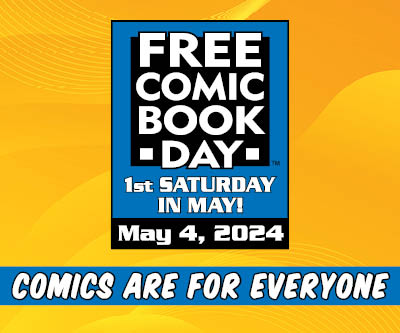
Your Hero Should Save You First
Nerdvana presents Small Press Saturday – aka, Lessons Learned Self-Publishing Comics
Sometimes I wonder how those first comic book readers felt in the late 1930s, holding that newly released copy of Action Comics #1, featuring the debut of Superman. What a phenomenon! Yes, fantastic pulp heroes existed before Superman, but his creators, Jerry Siegel and Joel Shuster, mixed the perfect batch of creative chemicals to create an explosion, with a fallout that continues to this day. Will any other character have as tremendous a cultural impact?
That’s not a rhetorical question. What other character in modern history birthed an entire genre, as Superman did with superhero culture? Did Luke Skywalker inspire SPX-saturated science fiction cinema? Did Harry Potter launch fantasy YA lit? Arguments can be made — and I’d love to hear them — but WHO isn’t really the argument I want to make. It’s WHY.
Why DID Superman stand out from the likes of Doc Savage and John Carter? Several variables contribute — the comic book format, the colorful costume — but the reason Clark Kent is a household name nearly 100 years later is a testament to his CHARACTER, plain and simple. We think of Superman as a straightforward “boy scout”-type character, but his origins were once a complicated enigma for new readers. We take for granted the concept of aliens, orphans, and nerds-turned-big city reporters TODAY, but in the 1930s? Those details were absolutely outlandish, and probably a little sexy. They set the standard for EVERY superhero to follow. Seriously, nearly every superhero since is an alien, an orphan, or a nerd-turned-big city reporter.
Siegel and Shuster didn’t cut these traits from whole cloth. They LIVED them. As young Jewish men struggling to break into the newspaper comic strip business on the cusp of World War II, they felt alienated, criticized by their families, and, most definitely, nerdy. In so many ways, Clark Kent was an amalgam of his two creators. Superman’s varied powers were designed to endure the challenges his creators faced on a regular basis — and THAT’S THE SECRET INGREDIENT. Today’s mantra:
The first person your hero should save is you.
I propose that the most enduring characters in comics — and maybe in all of fiction — were sprung from some challenge in their creators’ lives. Yes, I insist that characters like Batman, Wonder Woman, and Spider-Man were all inspired by some strife or struggle, and their creators sought solutions that the real world couldn’t offer. Is your city wrought with crime? If only a wealthy philanthropist could master science and combat to rise above the law and fight it! Feeling awkward and bullied at school? If only you could costume yourself, head to toe, and swing above it all!
Am I suggesting that all superheroes are a metatextual code for their creators’ psychoses? Not at all. I AM suggesting that the most TIMELESS characters have an X factor (no pun intended) connected to their creators’ circumstances, some part of themselves that’s both a timestamp for that moment of inspiration AND timeless in its potential appeal.
For instance, of COURSE Stan Lee and Jack Kirby’s seminal superheroes were the results of reckless radioactivity — they were created at the zenith of the atomic age, when everyone feared nuclear war in the early ‘60s. Yet, their transcendent appeal is rooted in the subtext of the nuclear FAMILY. Marvel launched with the Fantastic Four, inherently a family unit, and continued with Thor, whose arch-nemesis is his very brother. Spider-man is as beholden to his aunt’s grocery list as he is the Shocker’s latest bank heist. No matter how cosmic the threat, Marvel’s heroes always have problems at home, too — and, lo, so shall we all!
A more modern example is the Teenage Mutant Ninja Turtles. When Kevin Eastman or Peter Laird talk about the origin of their partnership, they often include the instant brotherhood they felt over their fandom for Jack Kirby. They juggled jobs and household chores with drawing comics — so, no wonder their breakout hit featured brothers fighting a villain inspired by a kitchen utensil, that shares a name with an office accessory, to boot! Doing the dishes and needless paperwork — two of the cartoonist’s most notorious rogues.
The next timeless superhero might be lurking in the shadows of your current struggle. A cool costume just isn’t enough. Awesome, unique superpowers aren’t enough. Even a rad roster of super-villains — if your readers don’t know WHY your heroes are fighting, they won’t care WHO your heroes are fighting. Like Siegel and Shuster, imagine your problems are everyone’s problems, and devise a hero with the abilities and determination to solve them. Even if you AREN’T creating the next Deadpool, at least you’re making your situation a little more bearable, and that’s a success in itself.
My flagship superhero is Speed Cameron — a kid that was struck by lightning at the same time a traffic camera caught him exceeding the speed limit, so, naturally, he’s become one with the speed camera. The idea was inspired by the time I received three such tickets in one night; I had just moved back to Arizona from California, and I didn’t know a certain stretch of highway was just 55 mph. I often explain, the speed camera’s bright flashes in the dark night seemed like special effects in a superhero movie, inspiring the idea for speed camera-headed supersuperhero.l
When I dig a little deeper, I realize my fascination with Phoenix’s speed cameras at that time were an extension of my wanting to find roots in Arizona. The cameras were fixtures in town, and I wanted to be a fixture in town, too. I wanted to feel at home. I promoted my comics so much, I soon received a plethora of media coverage — and finally felt established as a “local cartoonist.” Truly, Speed Cameron saved me.
We’ll never know what those kids in the 1930s felt like, beholding emerging characters that would eventually change the world, but I assure you — you CAN know what it’s like to behold characters that change YOUR world. All you have to do is MAKE them. If you’re lucky, they’ll take it from there.
My Maker Mantras aka Small Press Saturday: Lessons Learned Self-Publishing Comics
-
‘Done Is Better Than Good’
-
‘Go Where the People Are’
-
‘Be Your Biggest Fan’
-
‘The Main Gig’
-
‘What Are You Hungry For?’
-
‘Live The Adventure’
-
‘Default To The Dream’
-
‘Original Is Better Than Good’
-
‘Happy Batman Day!’
-
‘What’s The Point?’
-
‘Look BIG!’
-
‘Have a bio’
-
‘Education. Production. Distribution.’
-
‘Education Never Ends’
-
‘If It Doesn’t Make Dollars, It Doesn’t Make Sense’
-
‘Get It Out There’
-
‘Know Your Value’
-
‘Sell, Sell, Sell’
-
‘Be Grateful’
-
‘Listen to Leno’
-
‘Go All In’
-
‘Let Steamboat Willie Go’
-
‘The Fun Exception’
-
‘Your Hero Should Save You First’





















